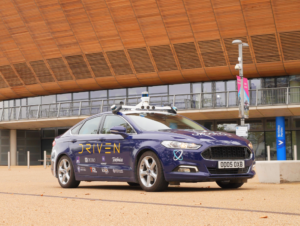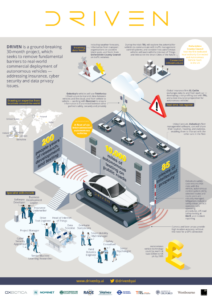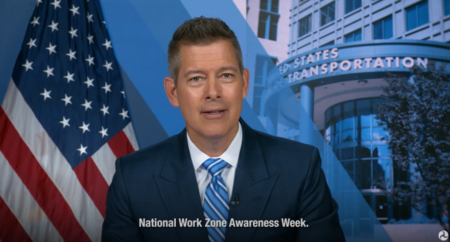The UK Government and industry-funded Driven project has successfully demonstrated that autonomous vehicles can operate safely in London’s complex urban environment, highlighting the country’s capabilities in self-driving technology.
The Driven consortium has celebrated a key milestone in the 30-month project by demonstrating the capabilities of a fleet of self-driving vehicles in London’s challenging and complex urban landscape. The jointly-funded £13.6m (US$16.6m) program, which is the most ambitious of its kind, gave a week-long demonstration around Queen Elizabeth Olympic Park in Stratford, establishing the UK’s world-leading autonomous vehicle (AV) technology in challenging everyday conditions. Powered by Oxbotica’s autonomous software, the Driven program has confirmed that AVs can operate smoothly, safely and legally in complex real-life situations, with a safety driver present, on typical public roads in one of Europe’s biggest cities.
The Driven project has taken a comprehensive approach to addressing the challenges facing self-driving vehicles in the cities of London and Oxford, going beyond the technical obstacles and examining the entire AV ‘ecosystem’. It combines a wide range of technical experts in areas such as local authority planning, insurance, cyber-security and data trading. The project consortium includes: Oxbotica, Oxford Robotics Institute (ORI), Axa XL, Nominet, Telefonica, TRL, RACE, Oxfordshire County Council (OCC) and Transport for London (TfL). The project is adhering fully to the UK Department for Transport’s (DfT) Code of Practice and TfL’s recently published London-specific guidance for Connected and Autonomous Trials.
From Nominet and Axa XL’s collaboration developing situational risk management capabilities, to ORI’s data trading algorithms and O2’s role in ensuring safe and secure communications, the project has proved invaluable in fostering meaningful technological developments in the AV space. The prototype vehicles have succeeded driving in complex urban environments without the need for human input, exceeding the initial plan in terms of complexity and achievement. This means that fully-automated vehicles have made an important step forward towards everyday operation on the country’s roads.
 “Self-driving technology has the scope to revolutionize the way people travel, with potentially profound benefits for road safety, accessibility and convenience. We want to drive the roll-out of self-driving vehicles and continue to support innovators developing this ground-breaking technology,” said UK Minister for Transport, George Freeman. “The success of trials like project Driven underpin our ‘Future of Mobility: Urban Strategy’, highlighting our ongoing support for innovation, research and the trialing of exciting new technology.”
“Self-driving technology has the scope to revolutionize the way people travel, with potentially profound benefits for road safety, accessibility and convenience. We want to drive the roll-out of self-driving vehicles and continue to support innovators developing this ground-breaking technology,” said UK Minister for Transport, George Freeman. “The success of trials like project Driven underpin our ‘Future of Mobility: Urban Strategy’, highlighting our ongoing support for innovation, research and the trialing of exciting new technology.”
Speaking about the significance of the event, Driven program director and Oxbotica’s SVP for external affairs, Dr Graeme Smith, said, “The completion of this project marks a significant milestone for the future of autonomous vehicles in the UK. Establishing Britain as a world leader for innovative technologies has been at the heart of our mission and we’re incredibly proud of the steps we have taken to help make AVs a reality on our roads.”
Iwan Parry, market development lead for new mobility at TRL, added, “We are using the lessons learned from the Driven trials in the safety framework we are developing as part of the new specifications for regulating the safe conduct of technology testing on public roads in the UK.”





